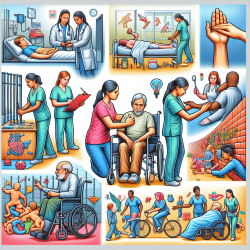Empowering Change: Transforming Abortion Services in Urban Ghana
As a passionate advocate for data-driven decision-making in healthcare, I am always on the lookout for research that can inform and transform practice. The recent study titled "Methods women use for induced abortion and sources of services: insights from poor urban settlements of Accra, Ghana" provides critical insights into the methods and sources of abortion services utilized by women in these communities. This research is not only enlightening but also serves as a call to action for practitioners to improve access to safe abortion services, ultimately enhancing women's health outcomes.
Understanding the Data
The study, conducted among 1,233 women aged 16–44 years in Accra, Ghana, reveals that medication abortion (MA) is increasingly becoming the preferred method of terminating pregnancies. About 46% of women who had an abortion within the year preceding the survey used MA, while 32% opted for surgical procedures. This shift towards MA highlights a significant change in women's preferences and the accessibility of abortion methods over time.
Key Findings and Implications
The research underscores several critical findings:
- MA is predominantly accessed through pharmacies, suggesting a need to review national guidelines to include pharmacists in the provision of MA services.
- Younger women are more likely to use MA compared to older women, indicating a generational shift in preferences and awareness.
- The study highlights the need for educational programs to improve women's knowledge of legal abortion conditions, as only 18% of women correctly identified at least one legal condition for abortion in Ghana.
These findings suggest that practitioners should focus on expanding access to MA through pharmacies and other trained health providers. Additionally, educational initiatives can play a crucial role in informing women about safe abortion practices and legal rights.
Encouraging Further Research and Practice Improvements
The study's insights provide a foundation for further research and practice improvements. Practitioners can explore the following areas:
- Investigate the impact of stigma on women's choices and access to safe abortion services.
- Develop training programs for pharmacists and other health providers to ensure safe and effective provision of MA.
- Explore the use of technology, such as mHealth or telemedicine, to improve access to safe abortion services in urban-poor communities.
By addressing these areas, practitioners can contribute to a more comprehensive and accessible reproductive health care system in Ghana.
Conclusion
The research on abortion methods in urban Ghana offers valuable insights that can drive meaningful change in women's health services. By embracing data-driven strategies and expanding access to safe abortion methods, practitioners can empower women and improve health outcomes. To read the original research paper, please follow this link: Methods women use for induced abortion and sources of services: insights from poor urban settlements of Accra, Ghana.










